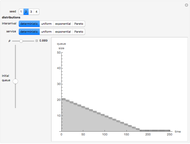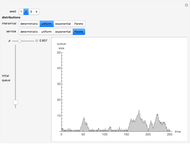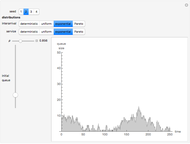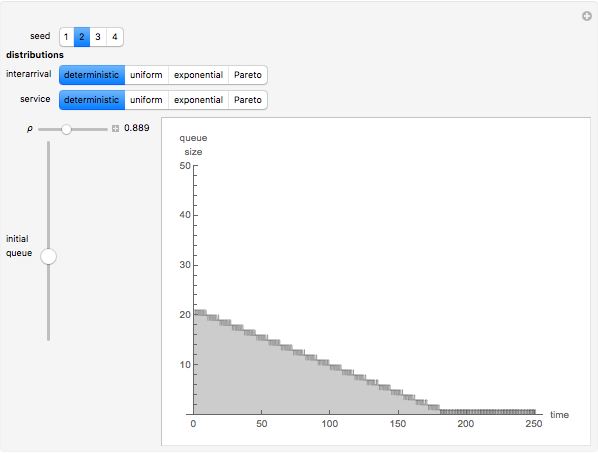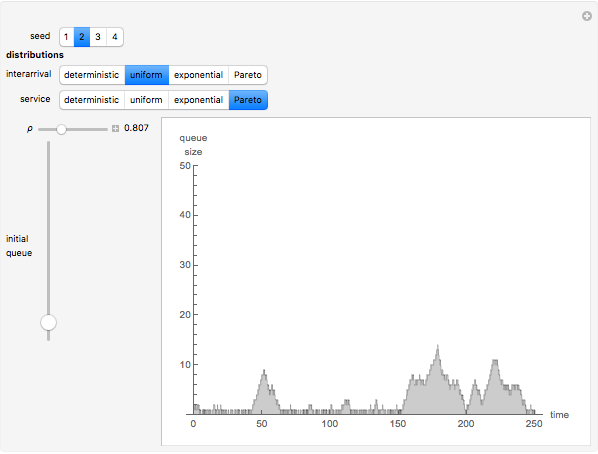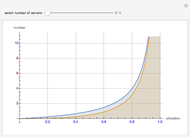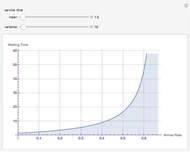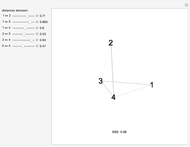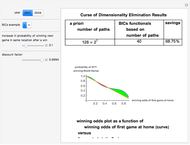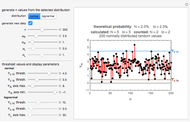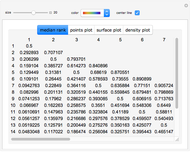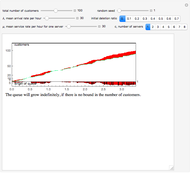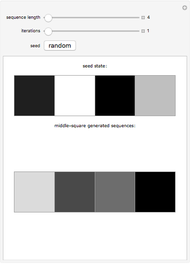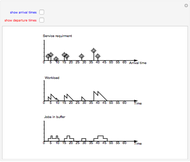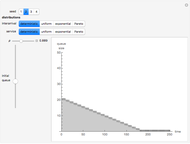Scalings of a GI/G/1 Queue Realization

Requires a Wolfram Notebook System
Interact on desktop, mobile and cloud with the free Wolfram Player or other Wolfram Language products.
A GI/G/1 queue is a queuing system with a single server and infinite capacity. Jobs arrive according to a renewal process with a given interarrival distribution having mean  and service times are i.i.d. with mean
and service times are i.i.d. with mean  . The traffic intensity is defined as
. The traffic intensity is defined as  , which is a natural measure of the load on the system. It is well known that the queue length process is ergodic only if
, which is a natural measure of the load on the system. It is well known that the queue length process is ergodic only if  . It is also known that when
. It is also known that when  , the queue length is typically larger when there is more variability in the interarrival and/or the service time distributions.
, the queue length is typically larger when there is more variability in the interarrival and/or the service time distributions.
Contributed by: Yoni Nazarathy (March 2011)
Open content licensed under CC BY-NC-SA
Snapshots
Details
Permanent Citation




